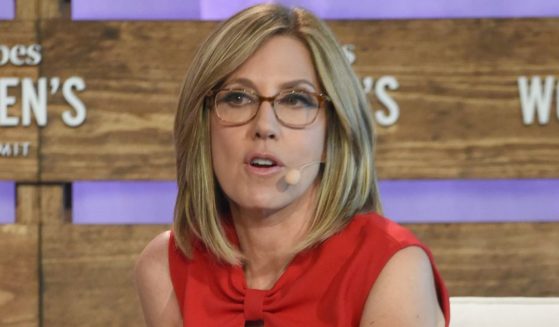
Poll Reveals Trump a Dominant Force on Voters' Minds
President Donald Trump was a dominant force in the midterm elections as attitudes toward the polarizing leader influenced the decisions of more than 6 in 10 voters.
Nearly 40 percent of voters cast their ballots to express opposition to the president, according to AP VoteCast, a national survey of the electorate, while about 25 percent said they voted to express support for Trump.
While Trump is not on the ballot, his controversial presidency has animated voters on both sides of the aisle, with 2018 likely to set turnout records for a midterm election.
Democrats have been activated in opposition to Trump since the moment of his election, while in recent weeks Trump has driven Republicans to the polls by trying to cast the race as a referendum on his administration. The outcomes of Tuesday’s races, which will determine control of Congress, stand to alter the course of the Trump presidency.
The snapshot of who voted and why comes from preliminary results of VoteCast, a nationwide survey of more than 113,000 voters and about 20,000 nonvoters conducted for The Associated Press by NORC at the University of Chicago.
Democrats looking to seize control of Congress have pinned their hopes on women and minority voters, while Republicans have hoped to retain majorities by preserving support among the bloc of voters who propelled Trump to the White House in 2016.
According to VoteCast, women voted considerably more in favor of their congressional Democratic candidate: About 6 in 10 voted for the Democrat, compared with 4 in 10 for the Republican. Men, by contrast, were more evenly divided in their vote.
Urbanites voted almost 2 to 1 in favor of Democrats, and small-town and rural voters cast votes for Republicans by a smaller margin.
In suburban areas, where key House races will be decided, voters skewed significantly toward Democrats by a nearly 10-point margin.
Non-white voters cast ballots for Democrats by a roughly 3-to-1 margin.
Democrats need to gain a net of at least 23 seats in the House and two seats in the Senate to win majorities in the respective chambers.
Ahead of the election, both parties claimed the emotionally charged debate over the confirmation of Supreme Court Justice Brett Kavanaugh would motivate their supporters to turn out. Kavanaugh faced multiple allegations of sexual misconduct from his youth that he denied.
According to VoteCast, half of voters said the tumultuous process was very important to their vote and they broke for the Democratic House candidate. Still, an overwhelming majority of voters in both parties said the Kavanaugh debate was at least somewhat important to their vote.
Both parties’ closing messages appeared to have animated their respective bases, according to VoteCast, with health care and immigration each described as the most important issues in the election by about 25 percent of voters. Of those who listed health care as the most important issue facing the nation, about 3 in 4 voted for the Democratic candidate. About the same percentage who described immigration as the most important issue cast ballots for the Republican.
Opposition to Trump proved to be more a motivating factor for Democrats than support for the president a factor for Republicans. Still, Republican voters tended to be overwhelmingly supportive of the president.
More voters disapproved of Trump’s job performance than approved — a finding that is largely consistent with recent polling.
Voters scored Trump positively on the economy and for standing up “for what he believes in.” But the president received negative marks from voters on temperament and trustworthiness.
Still, about one-third of voters said Trump was not a factor in their votes.
With the final days of the midterm campaign interrupted by a spate of politically motivated attempted bombings and a massacre at a synagogue in Pittsburgh, about 2 in 10 Democratic and Republican voters think their own party’s way of talking about politics is leading to an increase in violence.
VoteCast debuted Tuesday, replacing the in-person exit poll as a source of detailed information about the American electorate. Developed with NORC at the University of Chicago, it combines a random sample survey of registered voters and a massive poll conducted via opt-in online panels. The resulting research has the accuracy of random sampling and the depth provided by an online poll that interviews tens of thousands.
VoteCast results cannot be reliably compared to the results of previous exit polls, as the two surveys use different methodologies to poll the electorate. Differences between the two may be the result of differences in survey methods, rather than real changes in opinions or makeup of the electorate over time.
The Western Journal has reviewed this Associated Press story and may have altered it prior to publication to ensure that it meets our editorial standards.
Truth and Accuracy
We are committed to truth and accuracy in all of our journalism. Read our editorial standards.
Advertise with The Western Journal and reach millions of highly engaged readers, while supporting our work. Advertise Today.












